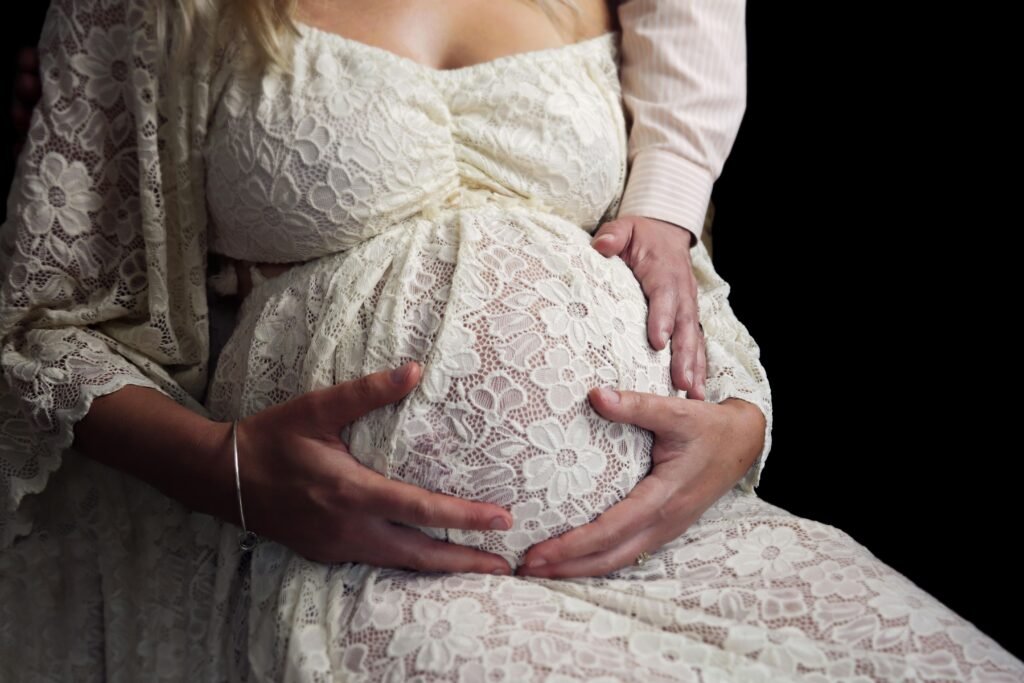Navigating the complexities of fertility after reaching the age of 40 can feel like an uphill battle for many women. However, advancements in medical science, combined with a deeper understanding of natural wellness, have opened up a realm of possibilities for enhancing fertility. This document aims to shine a light on the practical, evidence-based strategies for boosting fertility after 40 in their journey toward conception. From dietary adjustments and lifestyle changes to leveraging medical innovations, we will explore how to unlock your body’s potential for pregnancy. Whether you’re seeking to improve your chances of conception naturally or considering assisted reproductive technologies (ART), this guide provides an inclusive overview tailored for women navigating the unique challenges of fertility after 40.
Understanding Fertility after 40
Fertility is defined as the ability to conceive and carry a pregnancy to term. As women age, their fertility naturally declines due to changes in hormone levels and egg quality. This decline becomes more pronounced after the age of 35 and accelerates even further after reaching 40. However, it’s essential to note that every woman’s fertility journey is unique, and age alone does not determine one’s ability to conceive. Many factors can impact fertility, including overall health, genetics, and lifestyle choices.

Lifestyle Modifications to Boost Fertility
Adopting a wholesome lifestyle is pivotal for enhancing fertility, especially for women over 40. Prioritizing a balanced diet rich in antioxidants, such as fruits, vegetables, nuts, and whole grains, can help combat oxidative stress, improving egg quality and overall reproductive health. Regular physical activity, tailored to one’s fitness level, also plays a crucial role. It aids in maintaining a healthy weight, reducing stress, and improving blood circulation to reproductive organs. It’s equally important to limit exposure to toxins and environmental pollutants known to adversely affect fertility, including certain plastics, pesticides, and smoking.
Stress management is another critical aspect. Chronic stress can disrupt hormonal balance, impacting ovulation and overall fertility. Techniques such as yoga, meditation, and mindful breathing can be effective in reducing stress levels. Ensuring adequate sleep is also vital, as sleep deprivation can further exacerbate stress and hormonal imbalances.
Lastly, monitoring ovulation through natural methods or fertility trackers can help in timing intercourse during the most fertile window, thereby increasing the chances of conception. These lifestyle adjustments, when combined, can significantly enhance fertility for women in their 40s, offering a foundation for healthy pregnancy.
Natural Solutions for Improved Fertility
While medical interventions can provide effective solutions, many natural methods have shown promising results in improving fertility. Acupuncture, a traditional Chinese medicine practice involving the insertion of fine needles into specific points on the body, has been found to enhance fertility by stimulating blood flow to reproductive organs and regulating hormone levels. Similarly, herbal supplements such as macaw root, chaste berry, and evening primrose oil have been traditionally used to support reproductive health.
Mind-body practices like yoga and meditation can also aid in reducing stress levels and supporting overall physical and emotional well-being. These practices can be especially beneficial for women dealing with fertility challenges and seeking a more holistic approach to enhancing their chances of conception.
Medical Innovations for Fertility After 40
Thanks to advancements in medical technology, assisted reproductive technologies (ART) have become a viable option for women looking to boosting fertility after 40. In vitro fertilization (IVF), intrauterine insemination (IUI), and egg freezing are some of the commonly used ART procedures that can help overcome fertility challenges. These procedures involve retrieving eggs from the ovaries, fertilizing them with sperm in a lab, and transferring them back into the uterus. While these procedures can be expensive and emotionally taxing, they offer hope for women who may have otherwise struggled to conceive.
The Role of Diet in Enhancing Fertility After 40
A nutritious diet is a fertility tips for women over 40 and plays a critical role in supporting fertility. Certain foods are believed to improve reproductive health by increasing blood flow, reducing inflammation, and balancing hormones. Incorporating foods high in omega-3 fatty acids, such as salmon and flaxseed, can enhance the quality of the egg and the uterine lining. Foods rich in folate, like leafy greens and legumes, are essential for preventing birth defects and support overall reproductive health. Additionally, lean proteins, whole grains, and a variety of fruits and vegetables can provide the necessary vitamins and minerals that aid in optimizing fertility.
It’s also beneficial to limit the intake of processed foods, caffeine, and alcohol, as these can negatively impact fertility. Staying hydrated and maintaining a balanced diet not only supports reproductive health but also contributes to overall well-being, making it an essential aspect of fertility enhancement strategies for women in their 40s.

Emotional Support and Community
Navigating the complexities of trying to conceive and increasing fertility over 40 can be emotionally taxing. The importance of emotional support and a sense of community cannot be overstated. Support groups, whether online or in-person, provide a platform for sharing experiences, challenges, and successes. They offer a space where individuals can find understanding, camaraderie, and encouragement from others on similar journeys.
Counselling or therapy can also be invaluable, providing professional guidance and coping strategies to manage the emotional highs and lows. These services can help in addressing feelings of anxiety, depression, or stress that may arise. Engaging in these supportive environments can foster resilience, empowerment, and a more positive outlook during this challenging period.
Ultimately, while the focus often lies on physical health and treatments, nurturing mental and emotional well-being is equally crucial. Building a supportive network and seeking professional help when needed can make a significant difference in the fertility journey for women over 40. Overall, a holistic approach that combines lifestyle adjustments, medical interventions, and emotional well-being can offer the best chances of conception for women in their 40s. By prioritizing self-care and seeking support, women can navigate through this chapter with resilience and hope for a healthy pregnancy.
Conclusion
While fertility after 40 may present unique challenges, it’s essential to remember that every woman’s journey is different. By making lifestyle modifications, exploring natural solutions, and leveraging medical interventions when needed, women can successfully navigate their journey towards conception. With a healthy mind and body, women over 40 can unlock their potential for pregnancy and experience the joys of motherhood. So, stay positive, prioritize self-care, and never lose hope; for there is no expiration date on love and the desire to have a child. So, keep working towards your dream of becoming a mother, and remember that age is just a number!


